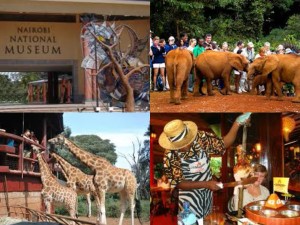History
Kenya has been inhabited by people ever since human history began. Tribal hunter gatherer groups were the first to populate the area, followed by a farming civilization from the Horn of Africa and the agriculturalists from Sudan. Around 100 AD Bantu speaking farmers from Nigeria brought ironworking to the area. Arab and Persian traders set up settlements and built mosques along the coast in the 8th century.
Arabs founded the independent city states of Mombasa, Malindi and Zanzibar on the coast in the 10th century, blending linguistic and cultural elements with the Bantu. By the 15th century, Mombasa was a major and prosperous port.
The Imperial British East Africa company took hold of Kenya in 1890 and began building railways using mostly Indian laborers, many of whom went on to settle in Africa. Queen Elizabeth II was holidaying in Kenya when her father died in 1952.
Culture
Kenya is a culturally diverse nation made up of different tribal groups, each with distinct languages, dress, music, and food. Some of the better known tribes include the coastal Swahili people and Maasai warriors in the wildlife rich grasslands. As much as a quarter of the population belongs to farming communities in the north.
The Kenyans have a family and community oriented culture, influenced by African traditions and the colonial period. They are creative and artistic and the nation has produced a number of notable writers and musicians and has a well developed cultural scene with television, theater, music, dance and the visual arts well represented. Kenya’s colorful festivals are a good way for visitors to gain insight into aspects of the country’s traditions.



